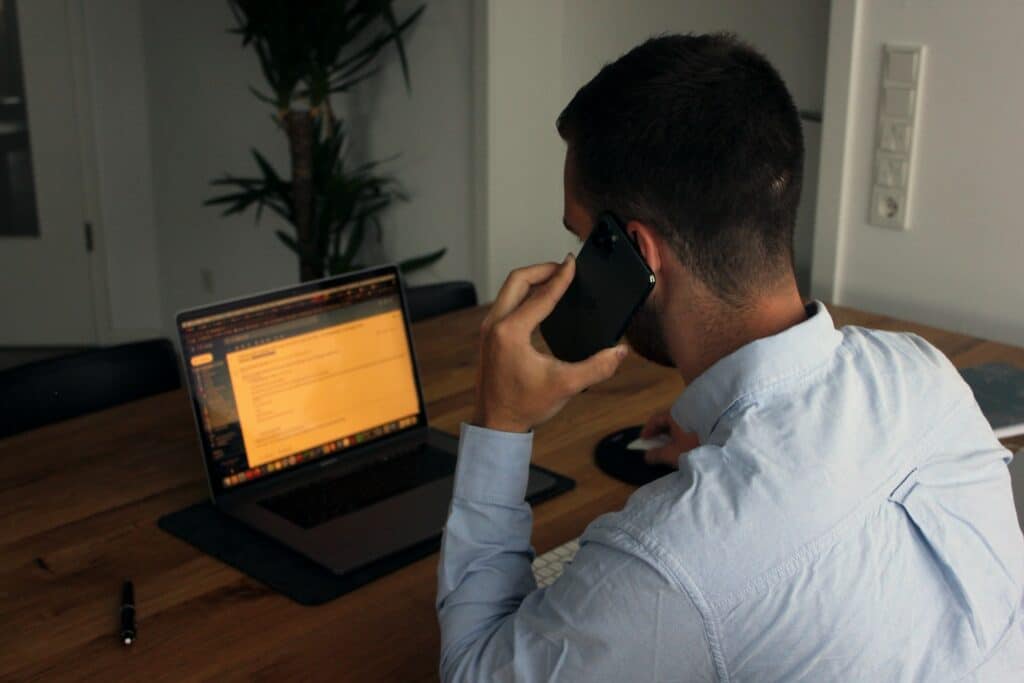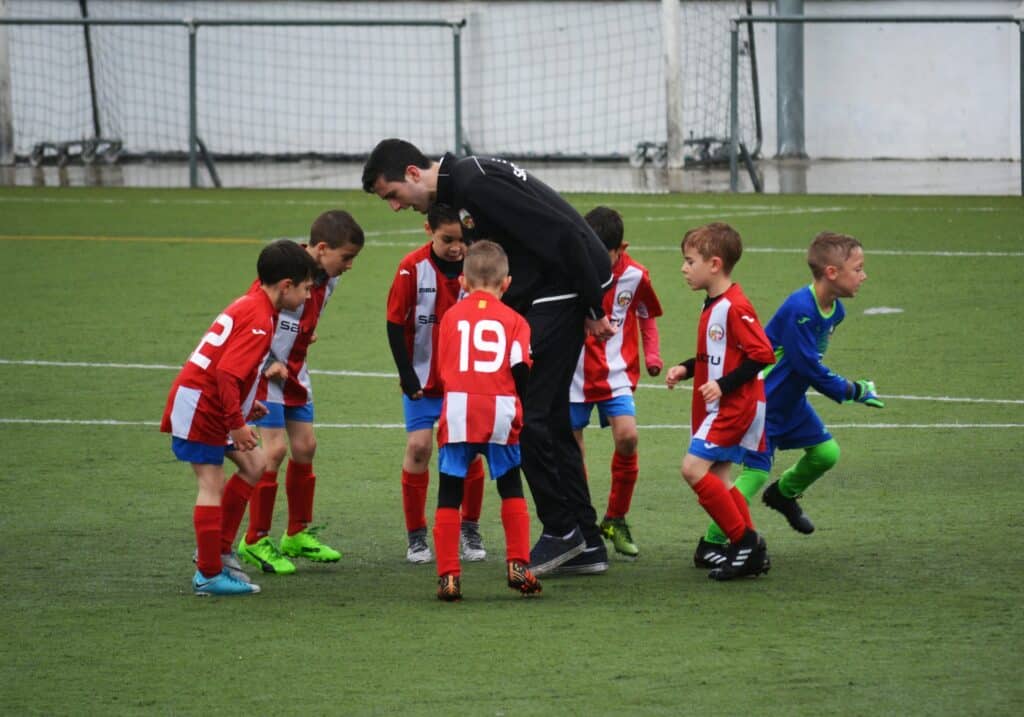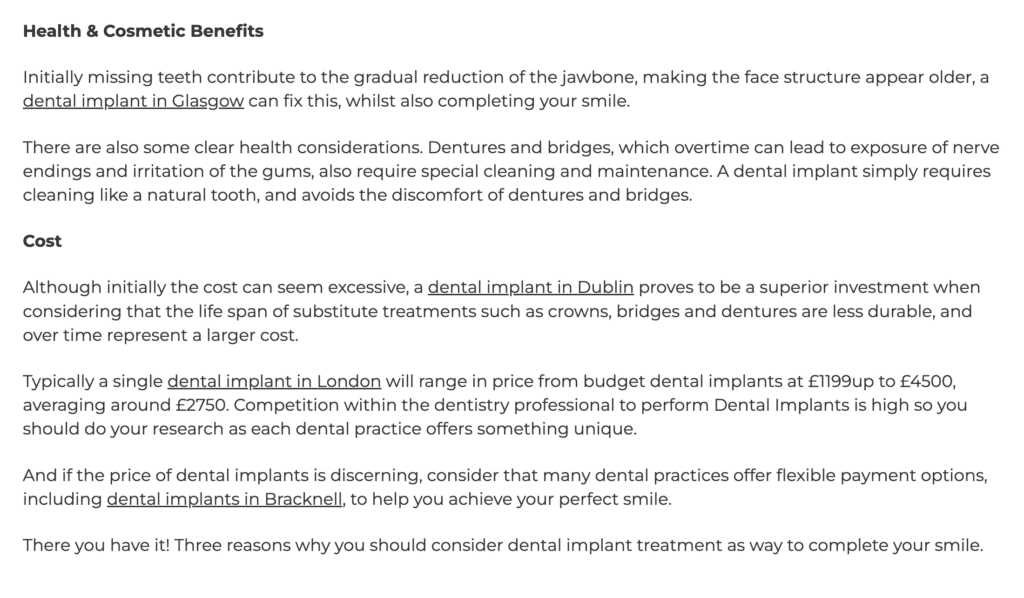When thinking about SEO, many clinic owners focus on doing things to their website itself, known as on-page SEO.
However, there’s only so much you can do with your site. Once you’ve got a well-optimised website, with SEO content for every treatment you offer and condition you treat, what next?
Now begins the real work of SEO, raising your website’s authority for the terms you want to target.
What Is Website Authority?
Put very simply, there are two primary factors that control where your website or business is placed on Google.
Relevance is the first, and kind of obvious. If you type in “monster truck”, Google isn’t going to return results for florists, there’s just no point.
Authority is the other, which is really just another word for popularity. If one website has only one or two other websites talking about it or linking to it, then it would be considered low authority. A website with thousands of other sites linking to it or talking about it would be considered high authority.
Put another way, let’s I search for a physiotherapy clinic and Google has two results to return: one clinic which has no reviews and no mentions elsewhere on the internet, and another which has over 100 5* reviews, has been mentioned in other local business’s blogs and websites, featured in the local press, sponsored local events, and mentioned on physiotherapy and health websites and journals. Obviously the second one is much more likely to answer the searcher’s query than the first.
How Hard Is it to Build Website Authority?

Ok, so honestly, authority-building is hard. It takes work.
To put it into perspective, I was mentored for a while by the CEO of a top digital marketing agency with hundreds of employees and thought I must be doing something wrong with link building, it seemed so difficult. I put this to him and he said not at all, they have whole teams of people who do nothing all day but create content that they hope people will want to link to, create events, videos, webinars, and reach out all day to other websites to ask them to link back. Even for them, it’s a really labour-intensive task.
At the same time it works because most people aren’t doing it. It’s not a quick fix that you can pay someone a few hours to do and tick a box, it takes real work and engagement. Most people won’t commit to that, so when you do you’re giving yourself an advantage over the long term that simply can’t be bought.
Approach link- and authority-building like health and fitness. It’s not something you do for a short amount of time and then forget about, but an overall way of thinking for the long-term.
So How Do I Raise My Website Authority?
These are the steps we work through when doing authority / linking work with a client. Some are easier than others, so we pick the low-hanging fruit first before moving on to things that take more work.
1. Reviews
Reviews are a simple way for local businesses to build authority. Put in place a system to ensure that every patient is asked for a review. A lot of this can be done automatically. We send emails to patients asking them to rate the business 1-10, with the high scorers then being redirected to a review page.
It counts a bit more if you have reviews on various sites – for example Google reviews, Facebook reviews and Trustpilot reviews, so give people the option.
If possible, check with people whether they have left a review and make it part of your follow-up process. Google is quick to erroneously label reviews as spam when they’re not, and it’s important you know if a review has been marked as spam to ask them to leave one elsewhere.
2. Citations
Citations are listings on local business directories such as yell.com. While these don’t always contain a link back to your website, just having your business listed on these sites increases your credibility in Google’s eyes. It’s not as powerful a tool as it used to be but still a fundamental step in local SEO.
Of course all directories are not created equal, and a listing on some is worth more than others. Check the authority score of the directory using an online tool, and aim for the highest authority directories.
There are services to take care of citation listings for you. They vary in quality, with some listing you on poorer sites than others and not doing the most important ones. Many citations will also need some form of manual verification after building as well.
3. Local Listings
Similar to citations, local listings mean listings on local websites that list businesses. Some council websites, for example, will list local businesses in the area. Depending on your specialty, you may also find there are local groups such as arthritis and fibromyalgia groups who will list relevant local businesses and suppliers who can help their members. Do some research and see what you can find.
4. Local Outreach and Partnerships

Once the simple listing work is done, it’s time to get stuck in to some outreach.
Again depending on your specialty, think about what sort of organisations and groups you may be able to help or create partnerships with. For MSK practitioners this could be sports clubs, for injectables it may be older people or tradespeople, for dentists it could be almost anyone.
We make a list of around 50 local organisations to begin with, and reach out to them first by email, then by phone if we don’t get a reply after a couple of emails.
We’ll offer them various partnership deals such as 20% or 50% off a first appointment for their members, a flat rate discount, special deal or some other special offer in exchange for a link from their site. We may also offer things like an in-person talk or free clinic with our client, depending on what we think the organisation can offer us.
Finding the right size of organisation is key here. Too-large groups will already have sponsorship deals in place and will expect you to pay for any exposure. Too-small groups will happily have you trek across town to give a talk to 4 or 5 people and not have a website to link back to you from. It’s about finding that Goldilocks level where the group is large enough to be able to give you a blog post, social media or mailing list shoutouts, but small enough that an offer for their members and local partnership deal is enticing.
5. Local Sponsorship
Following on from step 4, larger local groups or local community events will generally offer sponsorship opportunities. This may range from paying £50 for a mention on their website, through to buying an ad board and longer website mention for a few hundred pounds, through to full sponsorship of kit, etc., for thousands.
This can be a great way to be seen in the local community and be mentioned elsewhere, all of which will raise authority, in some cases whether or not you get an actual link to your site. Again it’s a question of picking the right opportunities for you, and weighing up the potential in authority building, direct link building and local exposure to the right people, against cost.
6. Events & Local Media

Getting more proactive, running your own events is a great way to publicise your clinic if done correctly. This could be anything from a free webinar on a topic of interest (think workplace health, menopause, scar therapy, running injuries, getting back into sport), to organising an event such as a local clean-up, or your clinic all taking part in a sporting event for charity.
Again, what we want to do here is pick the right event to maximise exposure and the potential of external mentions and inbound links. Start by creating a hitlist of relevant groups that may be interested in or want to promote your event, and reach out to them with details, trying to get them to promote it to their members. It’s key here that you focus on giving something valuable to the community. If it feels like a free sales pitch, no-one will be interested.
If your event is media-worthy, make a list of all local media and social media outlets and contact them telling them a little about it and asking if they will mention it. Also ask them who you can send a press release to after the event with photos and a write up, and any other information they may need. Try to take good photos on the day (think smiling children and happy local people doing good work) and write a story which they will be able to publish without having to put in much work editing or chasing you for more information.
7. Link Insertions
This is more of a national strategy than a local one, but will still help to raise your authority. Find blogs with existing articles relevant to what you do and ask them for a link insertion, sometimes called a niche edit.
This is a purely transactional strategy and you will pay for the link to be inserted (read: crowbarred) into the article. Here, for example, is a website that has created an article about dental implants then sold links in the article to various websites around the country.

8. Guest Posts
Writing guest posts for other blogs, with links back to your site, is a whole industry of its own within SEO.
Begin by looking for blogs in your niche. There are thousands of health blogs, and all are relevant to a clinic. Some have a focus purely on healthcare, whilst others are more beauty / wellness / lifestyle focused. They will generally tell you somewhere on the site whether they accept guest posts, or you can simply email and ask them. If there are local blogs that focus on your area, even better. They may even also fit onto your media list and accept press release style articles.
Although many will tell you to send suggestions for articles before writing and sending anything, if you’re not a professional content creator with a portfolio of work to point to, you’re often better to write the article first and copy it into the body of your email. This makes it way more likely to be read than if you attach it in a document.
Start by writing an interesting article and make a list of blogs you want to target. You can then work your way down your “hit list”, adapting your article for each if necessary as each will have different requirements. You may also want to consider the tone and language the blog uses, as each are aimed at varying levels of formality and prior knowledge.
Don’t be afraid to follow up 2 or 3 times if you don’t get a reply straight away. They may ask you for a fee to publish your guest post. This is normal depending on the authority of the blog, and you have to decide whether it’s worth it. Find out whether you will get a “dofollow” link, check the authority and relevance of the blog and whether you will be named as the author and get an author page, or simply linked back from the article body, then make a decision.
Just because you’re paying for a blog to publish your guest post, doesn’t mean you can simply write anything. They will still expect a certain style and standard of writing and reject your article if it doesn’t fit. That may seem a little one-sided, but bloggers know how much a decent link is worth.
9. Writing Magazine Articles
Writing for a magazine is a great way to raise your authority both in the eyes of Google and with your potential patients. Having your articles published in a magazine gives you instant credibility.
Do some research and look for magazines you think you could make a worthwhile contribution to. Generally this will be local or niche magazines, not publications you buy on the high street, who are less likely to be interested.
Look at the tone of the magazine, the intended readership and think what you could write about that would be useful to them. You’ll want to include some great photos, whether stock or your own.
You may want to give them a quick call to ask who you could send an article you’ve written to and get the editor’s details. That way you’ll also find out whether they’ll consider your guest article.
Magazine staff and editors are very busy. This means it’s hard to get an audience, but at the same time means if you can supply them with an article that is perfect for their readership, has photos and requires minimal editing, you’ve saved them a lot of work and they’ll snap it up.
With both magazines and local newspapers, don’t be disheartened if you have to knock the door quite a while to get a response. Partly because they are busy, but also you are dealing with the media cycle as a whole. We’ve submitted quite dull articles to local press which have been published because there’s simply nothing else to talk about that week, and then submitted killer articles which have been passed over because there are major local events to cover. That’s the nature of the game.
Conclusion
Raising your website’s authority is hard. It takes consistent effort over the long term, and is linked in with your overall profile in your industry or niche.
That said, it can be done. Most clinics do not have a high authority score and won’t make the effort to improve theirs, so a consistent effort over time can yield results.
If you’d like to know more about how to raise your website authority or how we can help you to do so, don’t hesitate to book a call.

